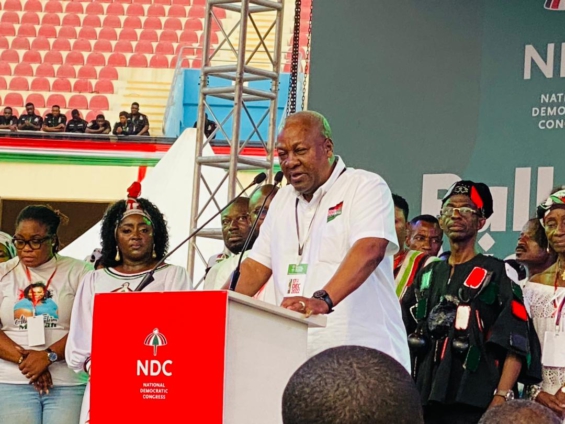The opposition National Democratic Congress (NDC) is most likely to win the 2024 presidential elections, Fitch Solutions has stated in its analysis titled “Positive Shift in Ghana's Political Risk Profile Following IMF Programme Approval”.
According to the UK-based firm, the rapid deterioration of economic conditions in 2022 and slow progress in the fight against perceived corruption will exacerbate anti-incumbency sentiment among the electorate
“The rapid deterioration of economic conditions in 2022 and slow progress in the fight against perceived corruption – in a July 2022 Afrobarometer study, 85.0% of Ghanaians believed the government was doing a poor job in tackling corruption - will exacerbate anti-incumbency sentiment among the electorate”.
“In addition, the IMF has voiced concerns over President Nana Akufo-Addo’s flagship Free Senior High School programme (introduced in 2017), labelling it as “poorly targeted”. Potential modifications to the programme in order to rein in spending could weaken the NPP’s campaign agenda, increasing the chances of an NDC win”, it added.

Risks to Ghana’s IMF programme are limited
Despite its view that a government change is likely after the 2024 general election, Fitch Solutions said “we believe that risks to Ghana’s IMF programme are limited. Previous NDC governments have requested IMF loans (Ghana’s 2015-2019 IMF programme was started under an NDC government) and current NDC leadership has expressed support for Ghana’s re-engagement with the IMF”.
Given the limited risks to the IMF programme, it revised Ghana’s 'policy continuity' score in Short-Term Political Risk Index (STPRI) to 70.0 out of 100, from 62.5 previously.
Social unrest to go down
Despite fiscal consolidation efforts under the IMF programme, Fitch Solutions said economic stabilisation and moderating price growth will yield net positive outcomes for Ghanaian households.
“While the government has raised taxes including income taxes and VAT in first-half of 2023, a more stable exchange rate, easing inflation and a stronger external position will gradually normalise economic conditions”.
“We believe that this will lower protest activity in the second half of 223, after the number of protests and riots increased by 17.2% year-on-year in first-half of 2023. To reflect this, we have revised up the 'social stability' score in our Short-Term Political Risk Index (STPRI) to 47.5 out of 100, from 40.0 previously (a higher score implies lower risk)”.
Ghana’s headline STPRI score now stands at 63.1, from 59.4 before. The country remains a regional outperformer, with the average Sub-Saharan Africa STPRI score standing at 50.3, implying that political risks remain relatively contained in Ghana.
Latest Stories
-
4 minutes -
Environmental protection officers receive training on how to tackle climate change
7 minutes -
CLOGSAG vows to resist partisan appointments in Civil, Local Government Service
1 hour -
Peasant Farmers Association welcomes Mahama’s move to rename Agric Ministry
1 hour -
NDC grateful to chiefs, people of Bono Region -Asiedu Nketia
1 hour -
Ban on smoking in public: FDA engages food service establishments on compliance
1 hour -
Mahama’s administration to consider opening Ghana’s Mission in Budapest
1 hour -
GEPA commits to building robust systems that empower MSMEs
1 hour -
Twifo Atti-Morkwa poultry farmers in distress due to high cost of feed
1 hour -
Central Region PURC assures residents of constant water, power supply during yuletide
1 hour -
Election victory not licence to misbehave – Police to youth
2 hours -
GPL 2024/2025: Nations thrash struggling Legon Cities
2 hours -
Electoral offences have no expiry date, accountability is inevitable – Fifi Kwetey
2 hours -
Ghanaians to enjoy reliable electricity this Christmas – ECG promises
2 hours -
Police deny reports of election-related violence in Nsawam Adoagyiri
2 hours

